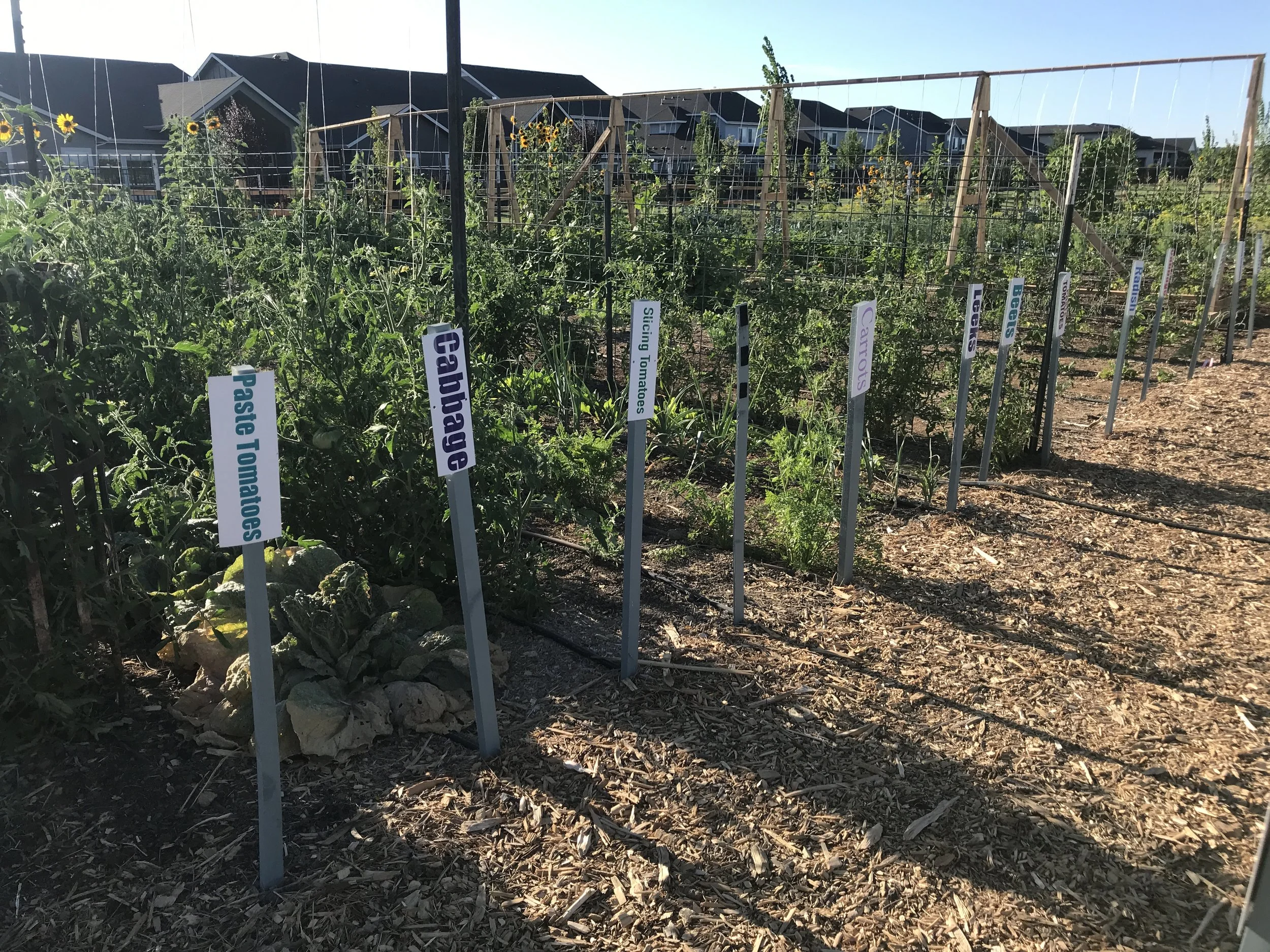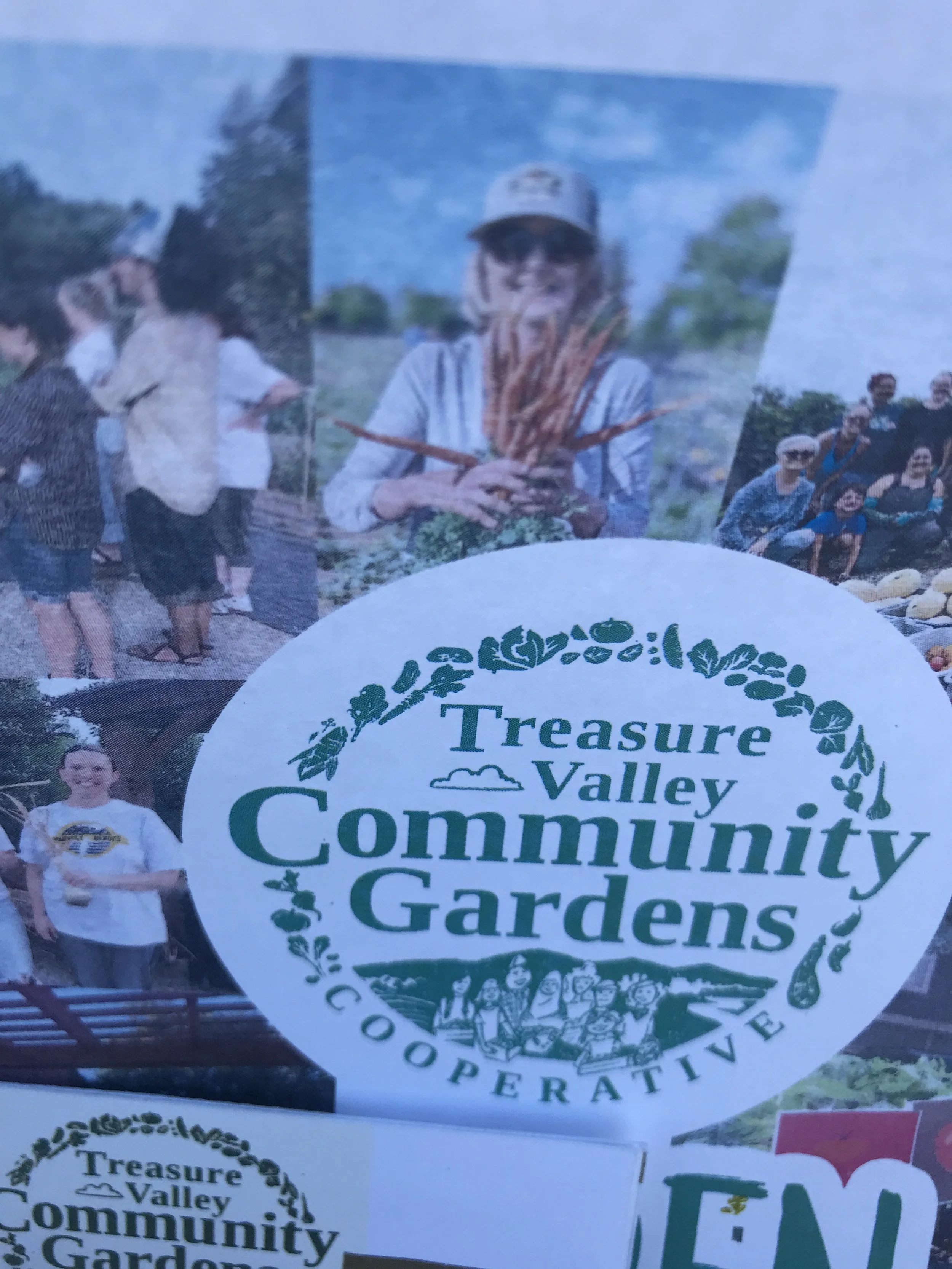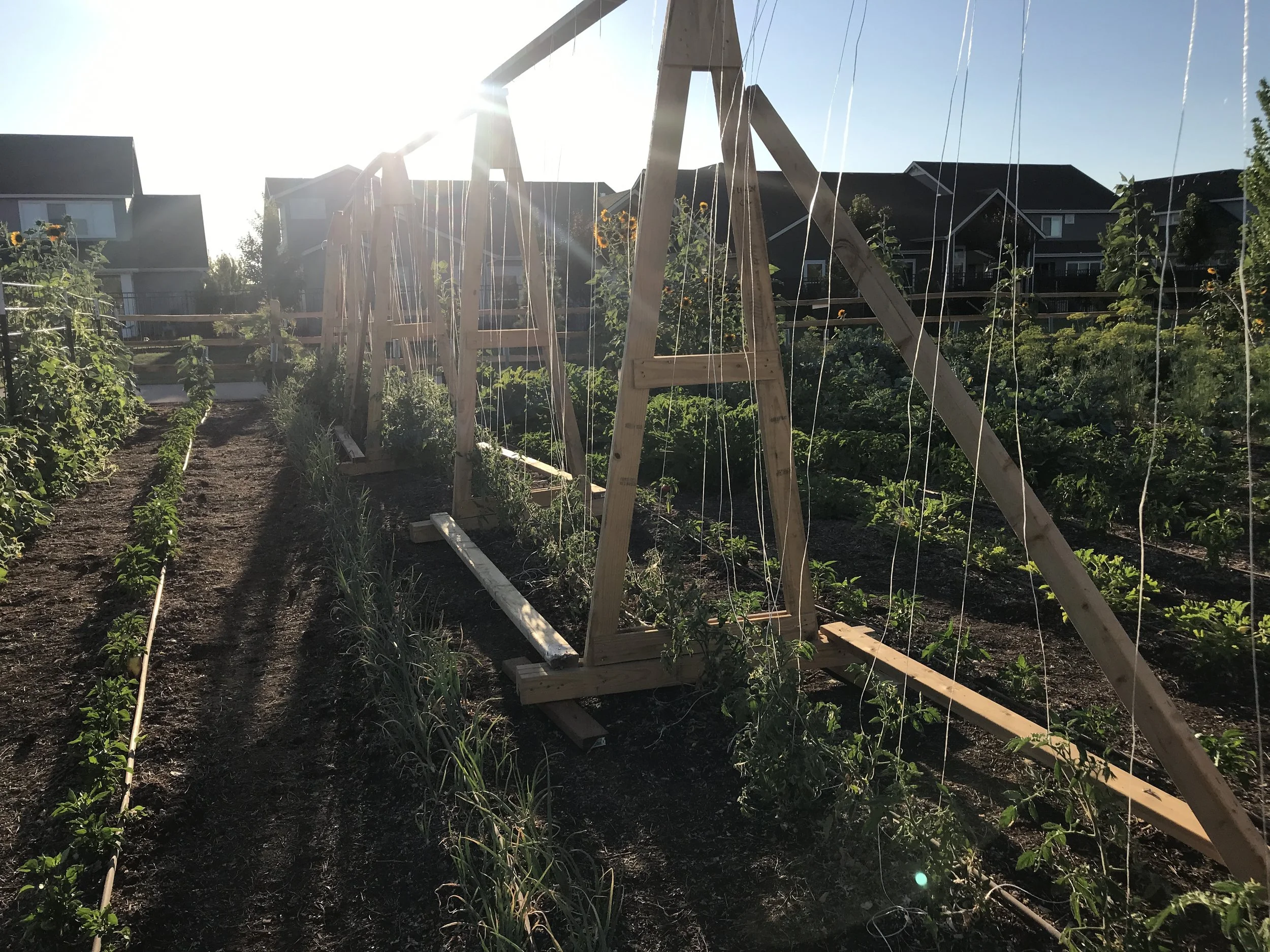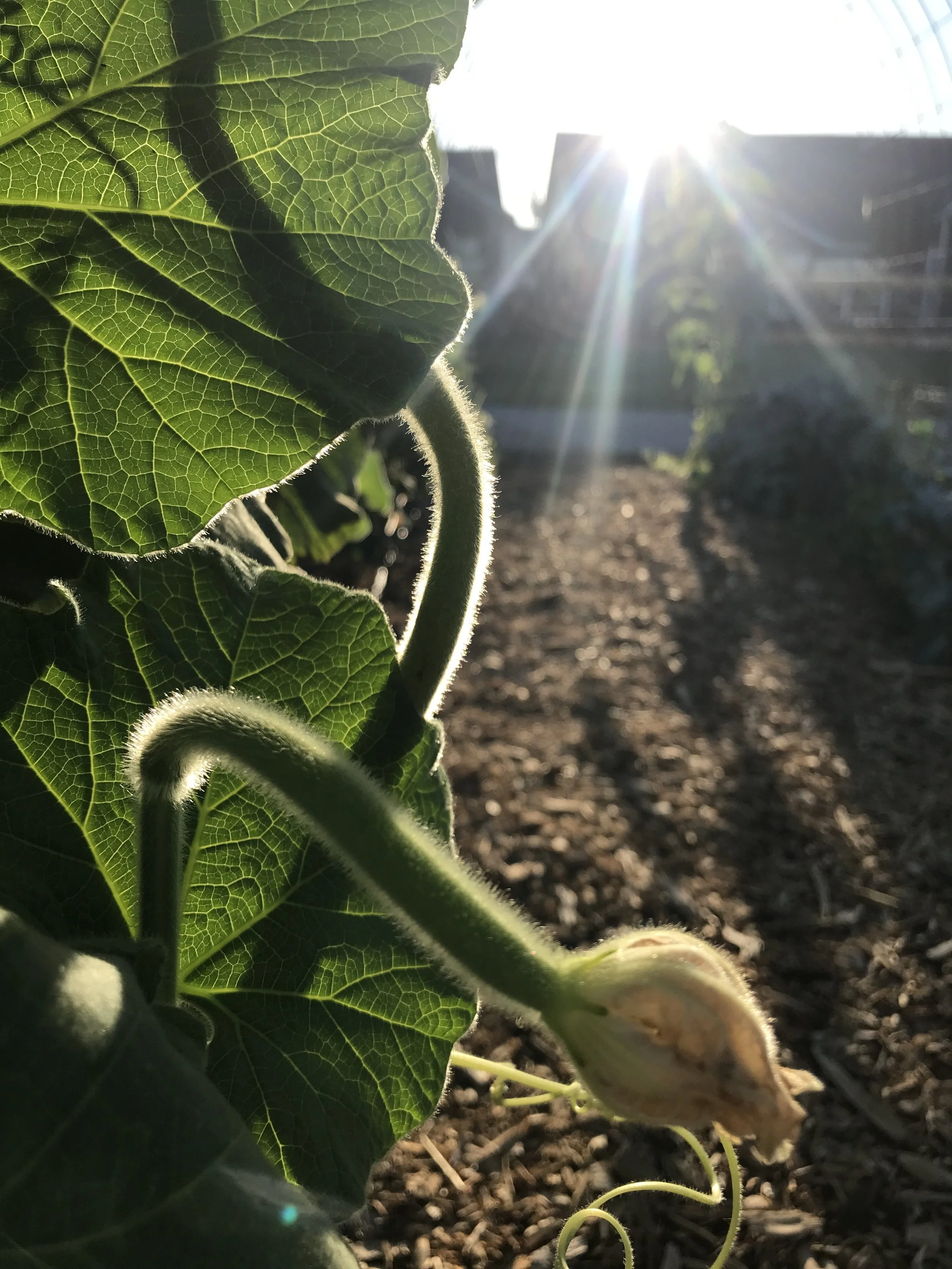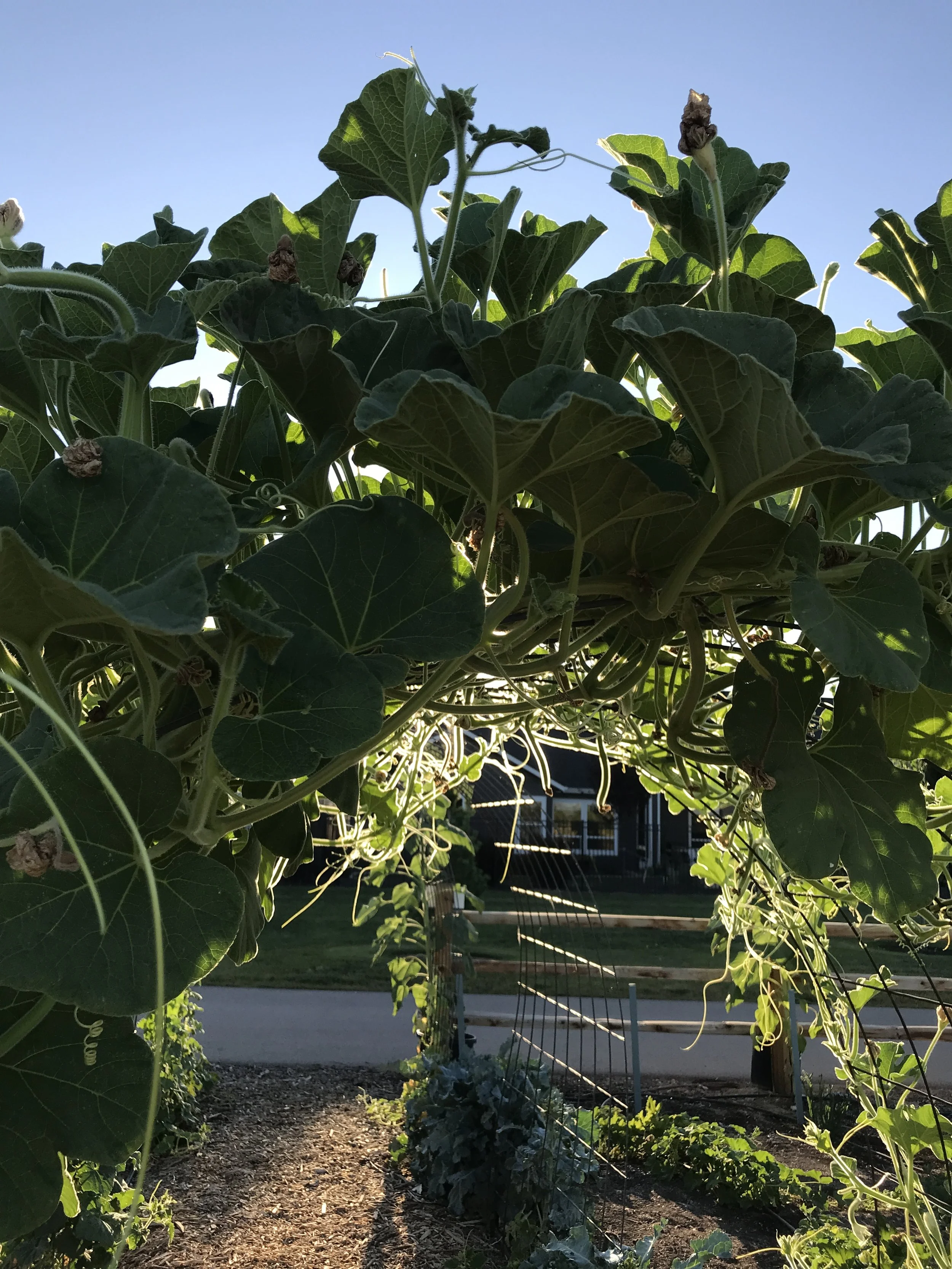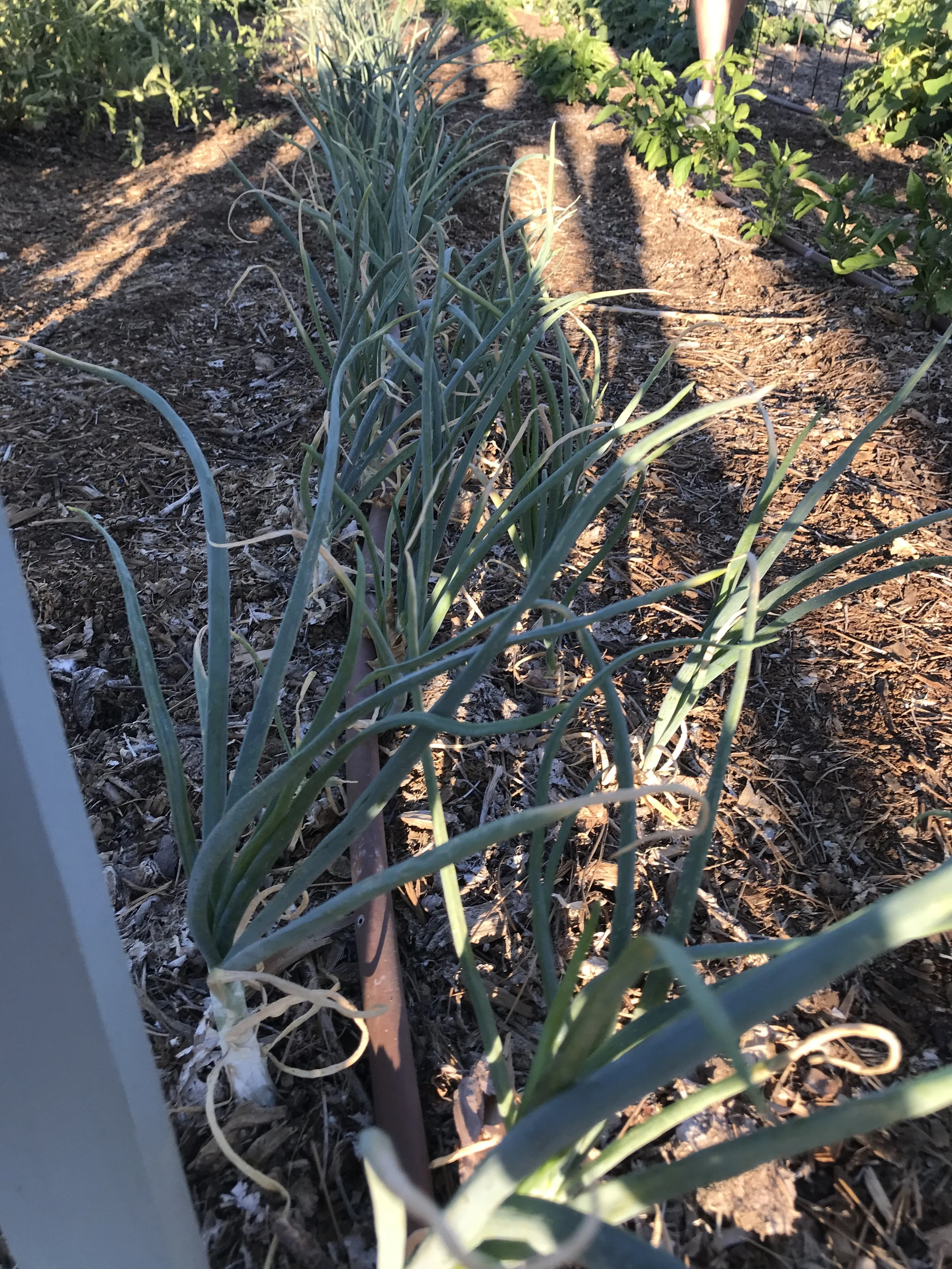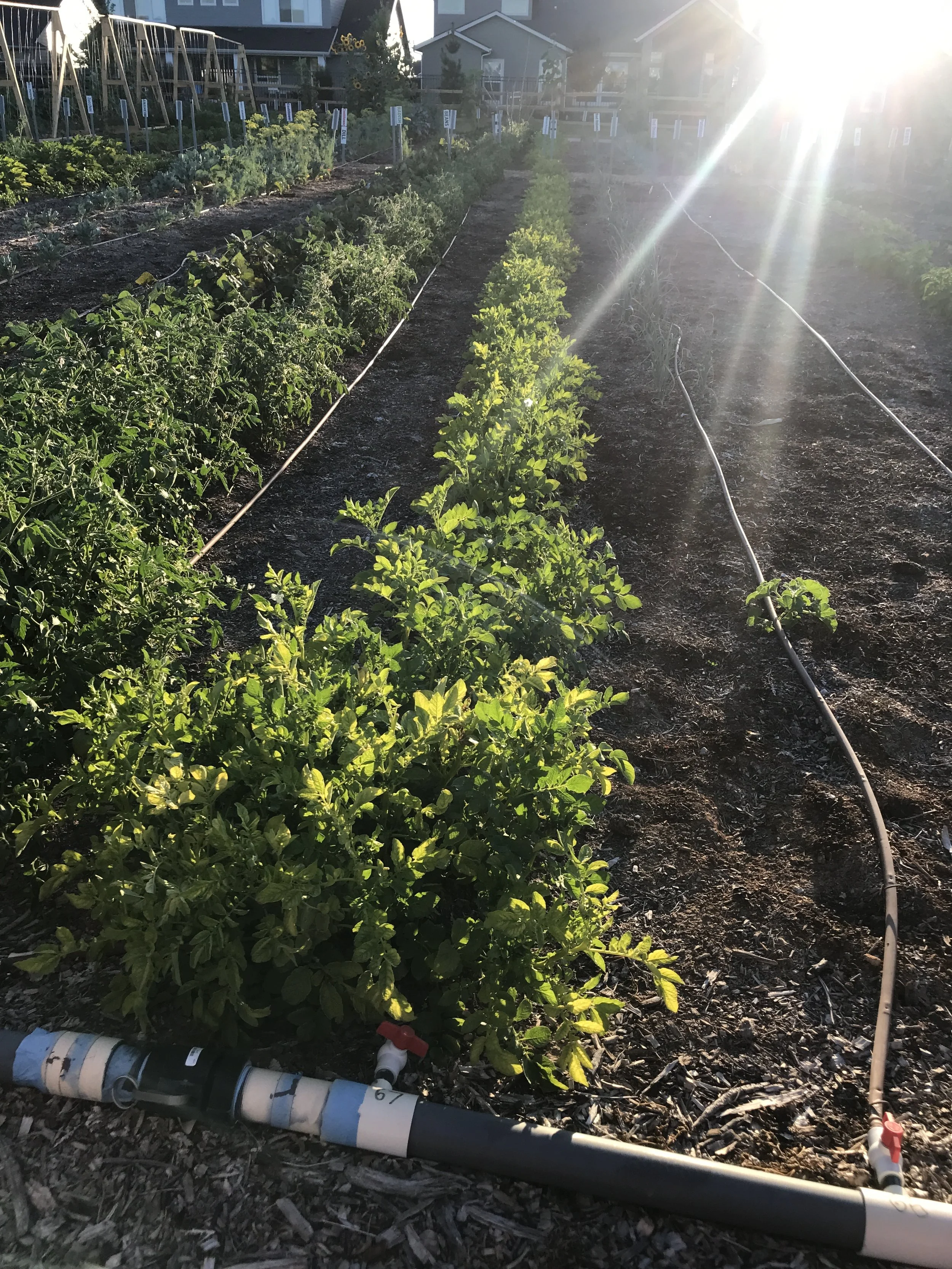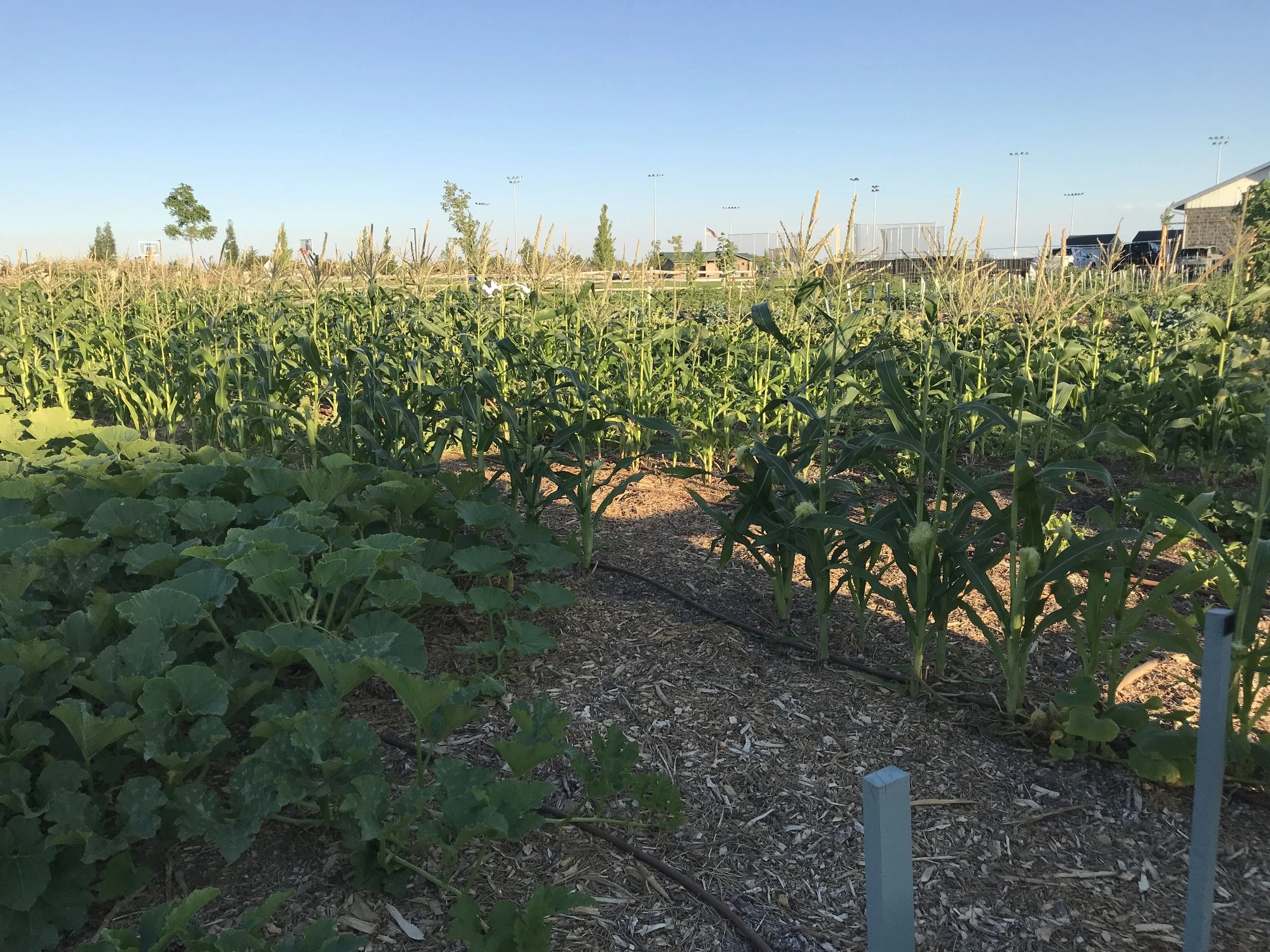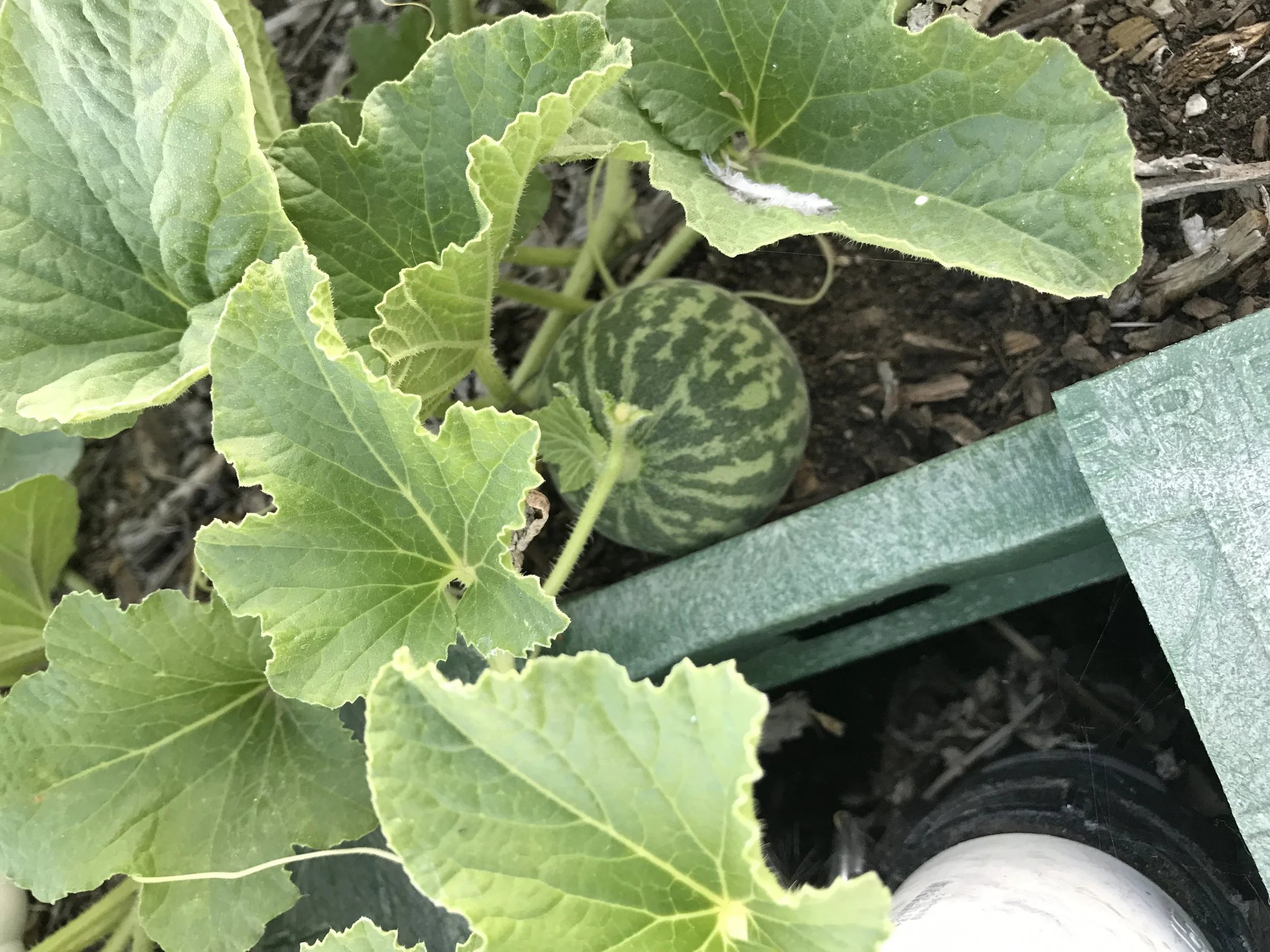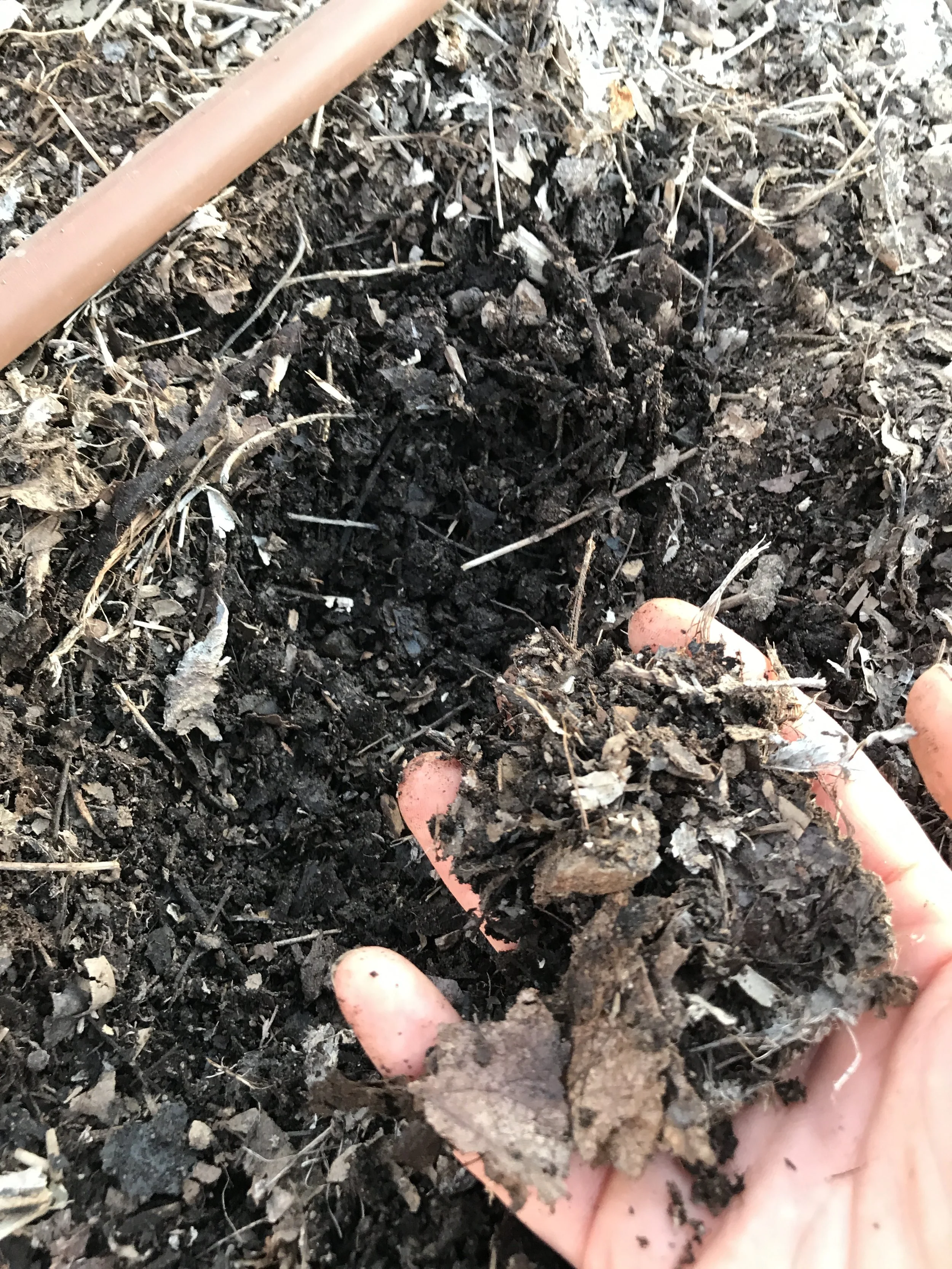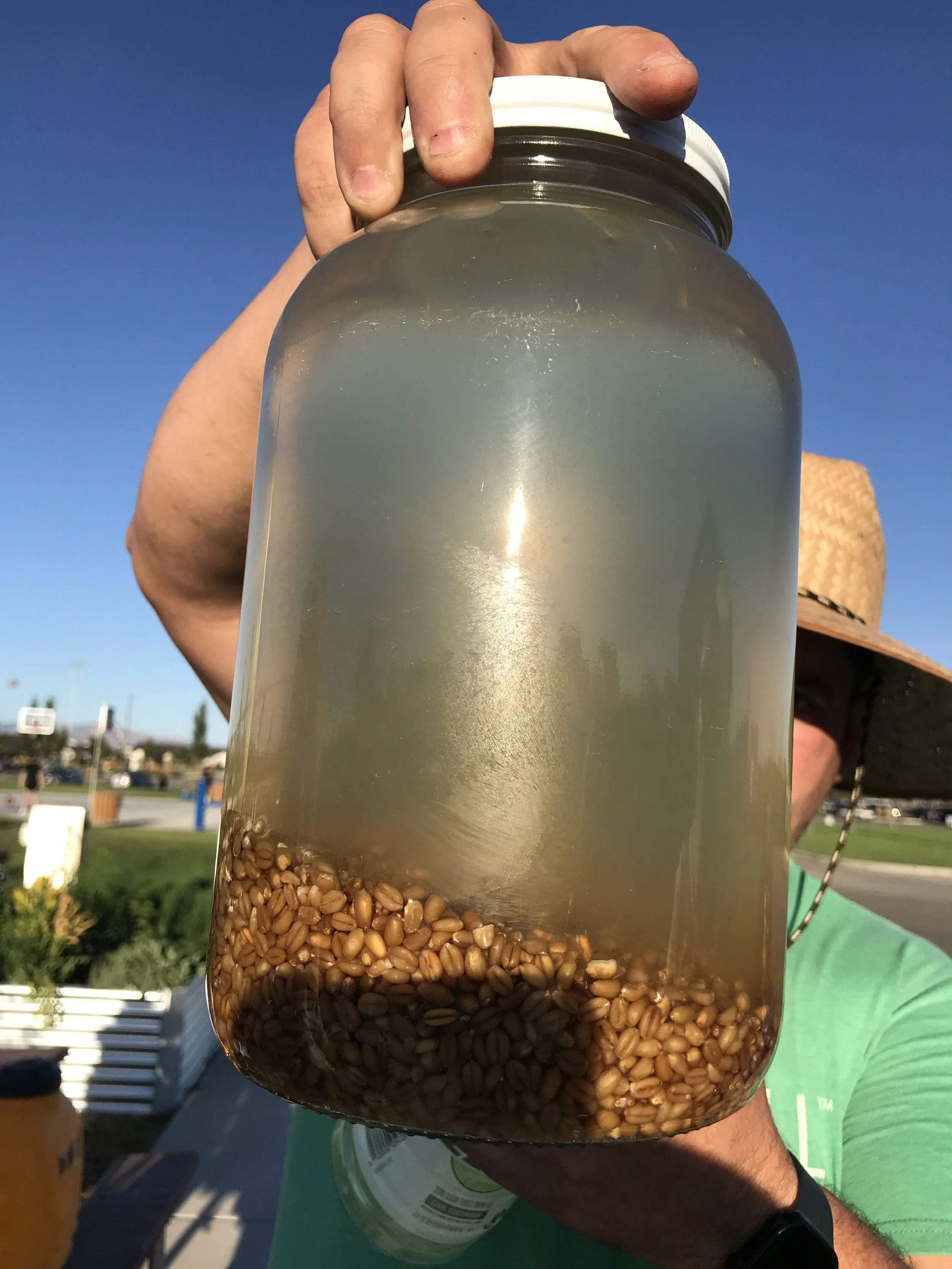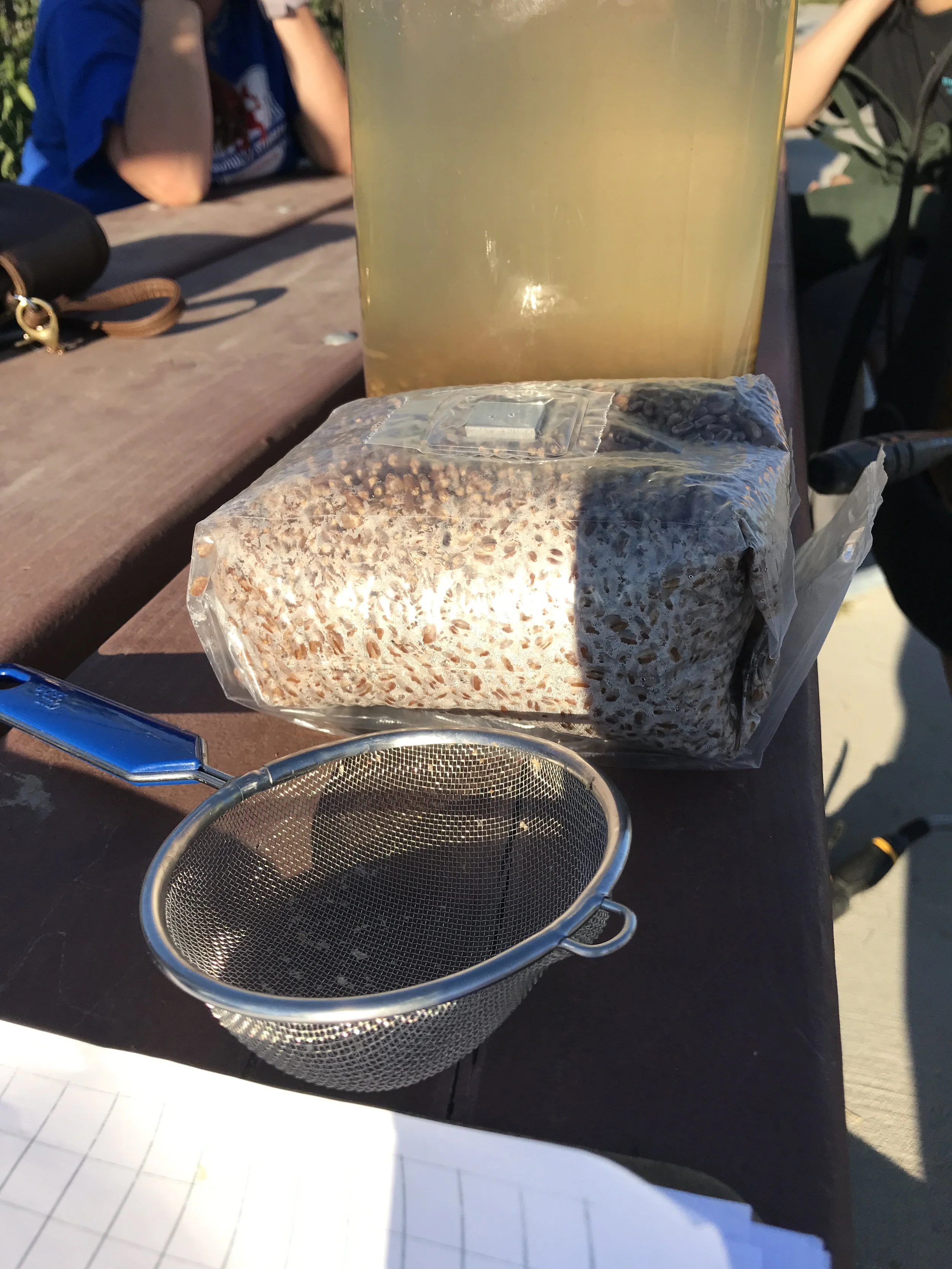Discovery Park Garden Tour
Led by Chris Verkerk - August 14, 2025
Discovery Park Garden is part of the Meridian Co-op Gardens, alongside the Kleiner Park Garden coordinated by Juli Bokencamp. Chris first gardened with Juli many years ago at Kleiner Park. His family tended a plot there for three years before moving to their own property, but he stayed connected—helping with rototilling, composting, and sharing ideas.
Among the practices he has brought over are no-till methods with woodchips and a dedicated kids’ garden. Children have also been part of Discovery Park Garden this season, with plans to develop their own space in the future.
Growing Membership
When Chris first opened the garden, about ten gardeners joined. This year, 22 have been on the roster, though midsummer heat has meant 5–8 typically show up on a work day. The group has gathered Wednesdays and Saturdays to care for the plots and harvest. Produce is shared among members, with the surplus donated to local food banks. During the tour week, the garden donated its first 100-pound harvest.
“Our first big donation this season was 100 pounds. Juli’s garden has done much more, but she’s 14 years ahead of us.”
Partnership with the City of Meridian
The garden sits on 0.4 acres of city land. The City of Meridian has provided the space, while the gardeners maintain it. Last year, the city invested $8,000 in irrigation, making the garden possible. This year, materials for a split-rail fence were supplied by the city, while members provided the labor.
Building Soil from Sod
Before it became a park, the land was a sod farm, leaving behind compacted soil and a 16-inch hardpan. To improve conditions, gardeners have added gypsum, leaves from city parks, and organic fertilizers. They brewed compost tea in 250-gallon batches and applied fish emulsions. The results have been visible, but Chris noted there still hasn’t been a single worm in the soil.
“I’ve started a worm farm at home so we can introduce them here. It’s probably a 3–5 year project before we see results.”
Zones and Accessibility
The garden has been organized into five zones:
Zone 1 (“Gnomes House”): no-till perennials and overwinter crops like garlic.
Zone 2: corn and vining crops.
Zones 3 & 4: rows aligned with the irrigation system.
Zone 5: raised beds.
One new raised bed was added this year to increase ADA accessibility. The concrete pad has allowed wheelchair users to participate. More beds are planned, including as part of a Girl Scout Gold Award project.
A four-foot woodchip path surrounds the entire garden, serving as a buffer and walkway. It has also helped prevent erosion and created in-place composting.
Challenges
The berm along the garden has acted as both a blessing and a curse. It shields the garden from view, discouraging theft, but runoff from the heavily watered hill has sometimes flooded the lower zones. The city uses synthetic methods for weed and pest management on the berm, making it even more important for the garden to maintain its commitment to organic practices.
Squash bugs have been another challenge. Despite being a new space, the garden was heavily affected last year. Woodchips provide them ideal overwintering habitat. Chris has tested different strategies: delaying squash planting, choosing resistant varieties, and even experimenting with Beauveria bassiana, a fungus that targets insects but leaves pollinators unharmed.
“Last year we were hammered by squash bugs. This year we’ve tried resistant varieties and even a beneficial fungus.”
Experimentation and Education
Beyond food production, Discovery Park has been a place of experimentation. A sensory garden has been started just outside the fence, with plants for touch, smell, sound, and taste—including a sugar plant with naturally sweet leaves. There has also been a focus on fun projects, like growing giant sunflowers and pumpkins.
Though still early in its development, the garden has been steadily building soil, growing community, and finding creative ways to adapt.
